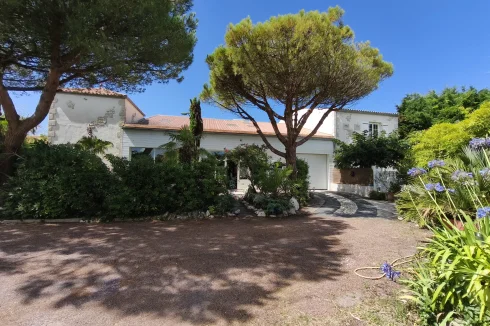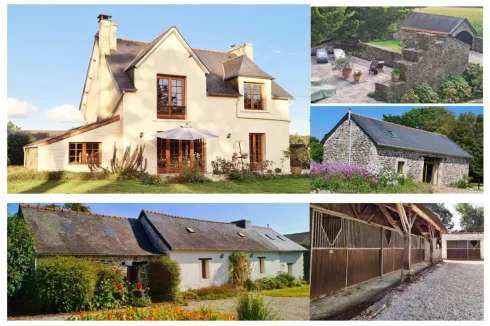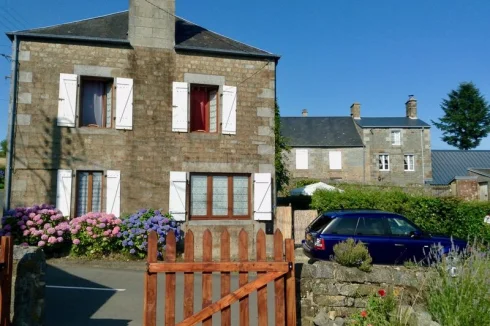Taxation Options for French Rental Properties
Tuesday 04 November 2014
Landlords of French property who incur major building costs need to give careful consideration as to the basis on which they are taxed on their rental income.
If you let residential property in France, you have the choice of two different methods of taxation.
You either opt to receive a fixed percentage cost allowance against rental income, which, for furnished properties is 50% of gross rental income (71% in the case of rural gites, meublé de tourisme and chambres d'hôtes) and 30% for unfurnished accommodation.
Alternatively, you can elect to be taxed on the basis of your actual net profits, the accounting method of taxation, called the régime réel.
These options are available for both furnished and unfurnished accommodation, although there are some differences in the rules that apply.
They also apply whether you are resident or non-resident.
The actual rate of taxation are those under the normal rules for personal income tax, so it will depend on your total income and your household circumstances.
If your costs exceed the cost allowance that is available, then the régime réel needs to be used.Under this tax regime the deductible costs include not only the usual management and maintenance costs (including local rates) related to the property, but also costs in connection with the purchase, renovation or repair of the property.
Of particular interest are the rules governing unfurnished property, as it is possible to charge losses ( 'déficit foncier') against your overall tax liability. This is one of the few remaining generous niches fiscales in France.
In the case of furnished accommodation it is only possible to charge losses against other rental income, which rather assumes you have a property portfolio, although depreciation of the property is admitted.
Needless to say, there are some limits on the use of the déficit foncier, although they are not hugely onerous.
The first such limitation is that the losses charged each year to your revenu global cannot be greater than €10,700. If the deficit is larger each year it can be carried forward for a further 9 years, but only against rental income.
There are also peculiarities concerning the manner in which interest charges are treated, in order to reduce the admissibility of the interest charge against total income.
Thus, if the loan interest is lower than the gross rental income the tax authorities consider that the deficit is entirely deductible against your total income, within the limit of € 10,700 per year.
However, by contrast, if loan interest is higher than the gross receipts, the deficit arising from the excess part of the interest is deductible only against rental income over the next ten years.
The following example can illustrate these points.
| Item | Example 1 | Example 2 |
| Gross Rental Income | - €8,510 | - €8,510 |
| General Charges | - €12,416 | - €4,720 |
| Interest Charges | - €5,280 | - €9,650 |
| Deficit | €9,114 | (€1,140+€4,720) = - €5,860 |
In the first example, the interest charges do not generate a deficit, as they are entirely covered by the rental income. As the result, the deficit of €9,144 is entirely chargeable against total income.
In the second example, gross revenues do not offset the loan interest. Therefore, the deficit is €1,140 loan interest (ie € 8,510 gross income - € 9,650 interest) and € 4,720 for other expenses. Only the latter fraction is chargeable to total income. The €1,140 interest can only be charged to future rental revenues.
In order to benefit from the régime réel method of taxation, the property must be let for a continuous minimum period of three years, change of tenancies permitted during this period.
In addition, there are limitations on just what building works can be accepted as eligible costs. Excluded are works that increase the size of the property or add additional units. Only the costs of repairs, maintenance and renovation are directly deductible, not major works of construction or reconstruction - 'travaux de construction et reconstruction'. Nevertheless, despite this limitation, there is no cost ceiling to the works that can be charged against rental income.
Perhaps even more importantly, only those works paid in the year the property is let are deductible.
It also needs to be added that the imputed deficit against overall income will not reduce the level of social charges on this other income; only the social charges that apply against the rental income will be reduced by the deficit. So it is not going to reduce the bill for social charges on your pension or other income.
Clearly, if you use the régime réel you are going to need an accountant, for which there will be a cost.
If you are a landlord in France and you seek accountancy support in relation to your business, then drop us a line at [email protected] and we will endeavour to signpost you to a suitable professional.
Back To: French News
Thank you for showing an interest in our News section.
Our News section is no longer being published although our catalogue of articles remains in place.
If you found our News useful, please have a look at France Insider, our subscription based News service with in-depth analysis, or our authoritative Guides to France.
If you require advice and assistance with the purchase of French property and moving to France, then take a look at the France Insider Property Clinic.





